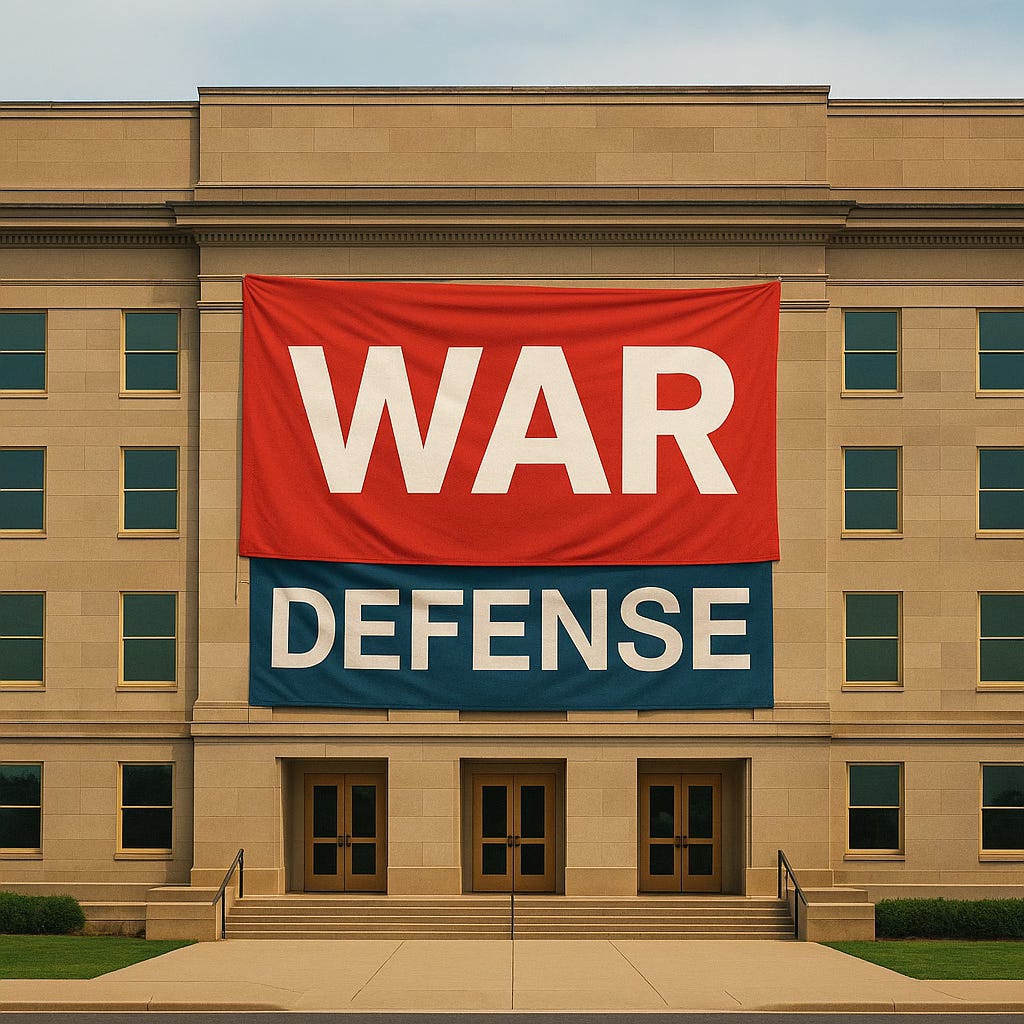The Pentagon’s Rebranding
and Its Real-World Implications
When President Donald Trump signed an executive order renaming the Department of Defense back to the Department of War, he did more than dust off a historical title. The move instantly sparked debate over whether it represents a symbolic reassertion of American military strength or signals a deeper shift in doctrine and posture (The Guardian, Reuters).
The name change resonates at a time of global instability: Russia’s ongoing war in Ukraine, U.S.–China rivalry, Middle East flashpoints, and domestic polarization. Language matters and renaming “defense” as “war” reframes not only how the Pentagon sees itself, but how the world perceives America’s intentions.
Implications of the Pentagon’s Rebrand
Historical Continuity, or Break?
The U.S. operated under a Department of War until 1949, when the modern Department of Defense was created to reflect a posture of deterrence rather than permanent mobilization. Restoring the old name suggests a return to pre–Cold War martial framing.
Messaging to Allies and Adversaries
Allies who rely on American security guarantees may read the move as a signal of aggressive posture, while adversaries like China and Russia may cite it as proof of U.S. militarism (AP News).
Legal and Procedural Questions
Congress created the Department of Defense by statute in 1949; Trump’s executive order raises constitutional questions about whether the name change can stand without legislative approval (The Guardian).
The “Warrior Ethos” Narrative
Trump and his allies have paired the renaming with rhetoric about reviving a “warrior ethos,” suggesting not only bureaucratic rebranding but also cultural change within the military (Times of India).
Domestic Political Signaling
Among Trump’s supporters, rebranding the Pentagon as the “Department of War” reinforces his narrative of military strength and defiance of institutional norms. Critics argue it is a politically driven spectacle that diverts focus and resources from serious issues such as recruitment challenges and underfunded modernization (Politico).
Impact on Civil–Military Relations
Framing the institution explicitly around “war” could complicate civilian oversight, reinforcing perceptions of a military-first state and deepening debates over the balance between executive and congressional control.
Global Narrative in a Multipolar World
At a time when Washington argues that China and Russia are destabilizing global order, the U.S. itself adopting martial terminology risks undercutting its moral framing of international competition.
Conclusion
The renaming of the Pentagon may seem cosmetic, but in politics and strategy, language carries weight. A “Department of War” conveys a more aggressive stance than a “Department of Defense,” regardless of whether the underlying missions change. The move may strengthen Trump’s political messaging at home while creating unease abroad.
Ultimately, the question is whether this shift is remembered as a symbolic flourish or the opening note in a broader transformation of America’s military identity in the 21st century.
